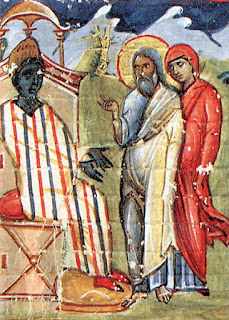three minute thesis
Last week I got the chance to compete in my university's Three Minute Thesis (3MT) competition. The goal is for students to summarize their MA or PhD thesis in less than three minutes in a way that engages and interests a non-specialist audience. I competed with students in Psychology, Interdisciplinary Humanities, Nursing, and more. I was grateful to have the chance to figure out not just what my thesis is about, but why it matters. And more than ever I believe it matters. I'll be working on fleshing this out into a hundred pages over the next 10 months, but here is the text of it in three minutes!
______
________
I was so honored to win First Place and People's Choice! And I owe so much to Dr. Perrin and Dr. Healey for their contributions, questions, and encouragement.
______
I want to tell you a woman’s story.
An economic crisis forces a woman and her husband to flee to
a near, but dangerous country. The husband recognizes that his wife’s beauty
could entice foreign men to take her for themselves and kill him, so he tells
his wife they will claim to be brother and sister. The woman recognizes the
vulnerability this will place her in and begs and reasons with her
husband against this plan, but he does not listen. After their immigration, the
woman hides herself for five years in order to avoid being seen and
taken by another man, but word of her beauty still spreads until it reaches the
country’s ruler who takes her away by force, but offers the “brother” financial
compensation, which he accepts. Eventually,
the truth of their relationship comes to light, and the ruler returns the woman
to her husband, giving him even more money to make amends. They leave the
country, the woman used and abused, (juxtapose) the man unharmed and prosperous
on her account.
This may sound like a modern story, but it’s actually two
thousand years old. It was found among the Dead Sea Scrolls in a scroll we now
call the “Genesis Apocryphon.” However, the story may still have felt familiar
because the couple is Abraham and Sarah, and another version of this same
story is found in Genesis 12 of the Jewish and Christian Bibles. But there is a
striking difference between the two versions of the story. While the Apocryphon
version shows Sarah distraught and resisting her impending exploitation, in the
biblical account she is completely silent, an expressionless object passed
between two men.
My thesis employs the lenses of both biblical and gender
studies to compare the Genesis Apocryphon scroll to the biblical book of
Genesis and ask questions that have never been asked in Dead Sea Scrolls
research. Why did the ancient authors choose to either represent or silence the voices of women in these texts? Why
did the silenced version of the story eventually become Scripture? Does
it matter that the Bible’s accounts of women are more silent than
other writings of their time? And perhaps most importantly, how might the
silencing of exploited women in the Bible have laid a foundation for our
own cultural moment? The Genesis Apocryphon is an ancient #MeToo story,
one that was lost for two millennia until its discovery in the last century.
It reveals that while we are not the first culture to silence women, we are
also not the first to make their voices heard. When the Bible was written,
it was not the only voice; how could things look different today if we
broaden our understanding of the world behind the Bible? How might the future
look different if we drew upon this forgotten past? Imagine if from our
earliest sacred texts, the voices of women had been heard and believed. Imagine
the impact that would have had on how history has unfolded. With the Dead Sea
Scrolls we have the chance to retell foundational stories and begin to make the
world we imagine a reality.
________
I was so honored to win First Place and People's Choice! And I owe so much to Dr. Perrin and Dr. Healey for their contributions, questions, and encouragement.




Comments
Post a Comment
thoughts so far